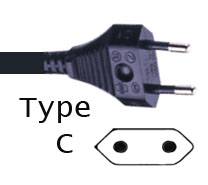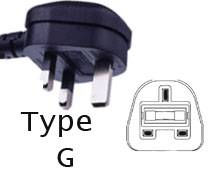Mauritius, an island nation in the Indian Ocean, is renowned for its stunning beaches, turquoise waters, and vibrant cultural heritage. With its diverse landscapes ranging from lush rainforests to dramatic volcanic peaks, Mauritius offers travelers a paradise-like experience filled with adventure, relaxation, and exploration.
Ultimate Mauritius Travel Guide
Destinations
Best time to go
The best time to visit Mauritius is during the dry season, which runs from May to December. During these months, the weather is pleasant with lower humidity levels, making it ideal for outdoor activities such as beach lounging, snorkeling, and hiking. However, if you’re interested in witnessing vibrant cultural festivals like Thaipoosam Cavadee or Diwali, plan your visit during the respective months.
Average Temperature By Month
January: 26°C (79°F)
February: 26°C (79°F)
March: 25°C (77°F)
April: 24°C (75°F)
May: 22°C (72°F)
June: 20°C (68°F)
July: 19°C (66°F)
August: 19°C (66°F)
September: 19°C (66°F)
October: 20°C (68°F)
November: 21°C (70°F)
December: 24°C (75°F)
What To Expect
Time Zone:
Mauritius operates on Mauritius Time (MUT), which is 4 hours ahead of Coordinated Universal Time (UTC+4).
Currency:
The official currency of Mauritius is the Mauritian Rupee (MUR). Currency exchange services are available at banks, exchange bureaus, and hotels. Credit cards are widely accepted in tourist areas, but it's advisable to carry cash for transactions in more remote areas.
Language:
The official languages of Mauritius are English, French, and Mauritian Creole. English is widely spoken, especially in tourist areas and business settings, while French is used in government and education. Mauritian Creole is the most commonly spoken language among locals.
Airport:
The main international airport serving Mauritius is Sir Seewoosagur Ramgoolam International Airport (MRU), located near the town of Plaine Magnien. It's the busiest airport in the country and offers connections to various destinations around the world.
How To Get Around
Car Rental: Renting a car is a popular option for exploring Mauritius independently. Several car rental companies operate at the airport and in major towns. Driving is on the left side of the road, and road signs are in English and French.
Taxi: Taxis are readily available in tourist areas and can be hired for short trips or full-day excursions. Make sure to negotiate the fare before starting your journey or insist on using the meter.
Bus: The public bus system in Mauritius is extensive and affordable, offering routes to almost every part of the island. However, buses can be crowded and may not always run on schedule.
Bicycle: Exploring Mauritius by bicycle is a fantastic way to enjoy the island’s scenic beauty at a leisurely pace. Bicycle rental shops are available in tourist areas.
Average Temperature By Month:
January: 26°C (79°F)
February: 26°C (79°F)
March: 25°C (77°F)
April: 24°C (75°F)
May: 22°C (72°F)
June: 20°C (68°F)
July: 19°C (66°F)
August: 19°C (66°F)
September: 19°C (66°F)
October: 20°C (68°F)
November: 21°C (70°F)
December: 24°C (75°F)
Plugs:
The standard voltage in Mauritius is 230 volts AC, 50Hz. The most commonly used plug types are Type C (European), Type G (British), and Type E (French). It's advisable to bring a universal adapter if your devices have different plug types.
VPN:
Access to certain websites and online services may be restricted in Mauritius. Consider using a virtual private network (VPN) to securely access the internet and bypass any censorship restrictions.
Safety:
Mauritius is generally a safe destination for tourists, with a low crime rate compared to many other destinations. However, it's essential to exercise common sense and take precautions to ensure your safety. Avoid walking alone at night in unfamiliar areas, and keep your belongings secure, especially in crowded places. Additionally, be cautious when swimming in the ocean and heed any warning signs about strong currents or marine life. By staying vigilant and informed, you can enjoy a memorable and worry-free trip to Mauritius.
Credit Cards and Banks
Credit Cards:
Credit card acceptance in Mauritius is widespread, especially in tourist areas, hotels, restaurants, and larger shops. Visa and MasterCard are the most commonly accepted, followed by American Express and Diners Club. However, some smaller establishments may prefer cash, so it’s advisable to carry some local currency as well.
ATMs:
ATMs are readily available in major cities and tourist hubs throughout Mauritius, allowing you to withdraw Mauritian Rupees (MUR). Port Louis, Grand Baie, and Flic en Flac have a high concentration of ATMs, but they can also be found in other towns and tourist areas. It’s recommended to withdraw enough cash when you have access to ATMs, especially if you plan to travel to more remote locations.
Currency Exchange:
The currency of Mauritius is the Mauritian Rupee (MUR), which is divided into 100 cents. You can exchange major foreign currencies at banks, currency exchange bureaus, and some hotels. US dollars, euros, and British pounds are typically the most widely accepted foreign currencies for exchange.
Banks:
Major banks in Mauritius include:
- Bank of Mauritius: The central bank of Mauritius, responsible for monetary policy and regulating the country’s financial institutions.
- Mauritius Commercial Bank (MCB): One of the largest banks in Mauritius, MCB offers a wide range of banking services including savings accounts, loans, and foreign exchange.
- State Bank of Mauritius (SBM): Another prominent bank in Mauritius, SBM provides various banking products and services for individuals and businesses.
- Barclays Bank Mauritius: Operating as part of the international Barclays group, Barclays Bank Mauritius offers retail and corporate banking services across the country.
Traveler’s Checks:
Traveler’s checks are becoming less common, and their usage is limited in Mauritius. It’s recommended to carry cash or use credit/debit cards for transactions.
Tips for Banking in Mauritius:
- Notify your bank before traveling to Mauritius to avoid any issues with card usage abroad.
- Keep your PIN and card information secure, and be cautious when using ATMs, especially in secluded areas.
- Carry small denominations of Mauritian Rupees for smaller purchases, as change may be limited.
- Familiarize yourself with the current exchange rate to ensure fair transactions when exchanging currency.
By understanding the banking system in Mauritius, you can ensure a smooth and hassle-free financial experience during your travels in the country.
Locations
Mauritius
TRAVEL FACTS
US State Dept Travel Advisory
The US Department of State currently recommends US citizens exercise normal precautions in Mauritius. Consult its website via the link below for updates to travel advisories and statements on safety, security, local laws, and special circumstances in this country.
https://travel.state.gov/content/travel/en/traveladvisories/traveladvisories.html
Passport/Visa Requirements
For the latest passport and visa requirements for this country, please consult the U.S. State Department’s “Learn About Your Destination” search tool, available through the link below.
US Embassy/Consulate
+(230) 202-4400; EMER: +(230) 5253-3641; US Embassy Port Louis, 4th Floor, Rogers House, John Kennedy Street, Port Louis, Mauritius; PTLConsular@state.gov; https://mu.usembassy.gov/
LGBTQIA+ Travelers
Telephone Code
230
Local Emergency Phone
999
Vaccinations
The CDC and WHO recommend the following vaccinations for Mauritius: hepatitis A, hepatitis B, typhoid, rabies, meningitis, polio, measles, mumps and rubella (MMR), Tdap (tetanus, diphtheria and pertussis), chickenpox, shingles, pneumonia, COVID-19, and influenza.
Climate
Tropical, modified by southeast trade winds; warm, dry winter (May to November); hot, wet, humid summer (November to May)
Currency (Code)
Mauritian rupees (MUR)
Electricity/Voltage/Plug Type(s)
230 V / 50 Hz / plug types(s): C, G


Major Languages
Creole, Bhojpuri, French
Major Religions
Hindu 48.5%, Roman Catholic 26.3%, Muslim 17.3%, other Christian 6.4%
Time Difference
UTC+4 (9 hours ahead of Washington, DC, during Standard Time)
Potable Water
Yes
International Driving Permit
Suggested
Road Driving Side
Left
Tourist Destinations
Chamarel; Flic en Flac Beach; Port Louis; Black River Gorges National Park; Mauritius Botanical Garden
Major Sports
Soccer, athletics (track and field), badminton, basketball, boxing
Cultural Practices
It is common to be playfully slapped on the shoulder in normal conversation in Mauritius.
Tipping Guidelines
A gratuity is already included with the bill in most restaurants, but wait staff appreciate any small change, especially if you are satisfied with the service. Taxi fares are usually negotiated in advance. If the driver has been particularly informative or helpful, a tip of 100-200 rupees will suffice to show your appreciation.
Souvenirs
Pareo fabric, ship models, spices, woven items, tax free luxury goods
Traditional Cuisine
Dholl Puri — pan-fried, split pea flatbread stuffed with a variety of fillings including rougaille (a tomato-based sauce), green chutney, kheer rice pudding, or lima bean curry
Please visit the following links to find further information about your desired destination.
World Health Organization (WHO) – To learn what vaccines and health precautions to take while visiting your destination.
US State Dept Travel Information – Overall information about foreign travel for US citizens.
To obtain an international driving permit (IDP). Only two organizations in the US issue IDPs:
American Automobile Association (AAA) and American Automobile Touring Alliance (AATA)
How to get help in an emergency?
Contact the nearest US embassy or consulate, or call one of these numbers:
from the US or Canada – 1-888-407-4747 or from Overseas – +1 202-501-4444
Central Intelligence Agency.
The World Factbook.
/the-world-factbook
(May 8, 2024)



